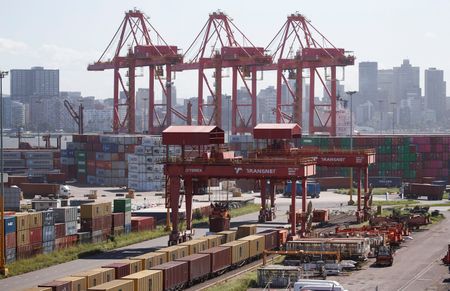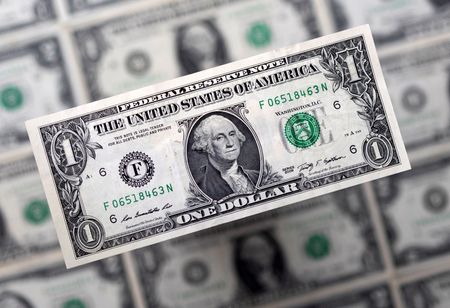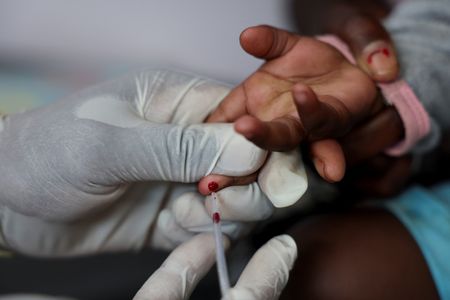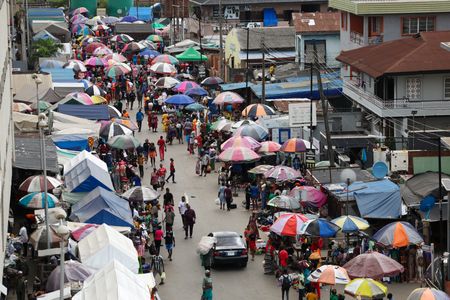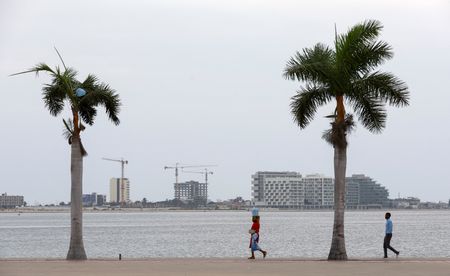By Colleen Goko
JOHANNESBURG (Reuters) -U.S. envoys in Africa will be rated on commercial deals struck, not aid spent, a senior State Department official said, touting it as the new strategy for U.S. support on the continent.
President Donald Trump’s administration wants to eliminate trade deficits and drive mutual prosperity, African Affairs senior bureau official Troy Fitrell said, according to remarks shared on Thursday.
“Assistance involves a donor and a recipient, but commerce is an exchange between equals,” he added at the launch of the policy in Ivory Coast on Wednesday.
U.S. ambassadors in Africa had already shepherded 33 agreements worth $6 billion in Trump’s first 100 days, Fitrell said. “Trade, not aid, a slogan we’ve seen thrown around for years, is now truly our policy for Africa.”
U.S. goods exports to sub-Saharan Africa amount to less than 1% of total U.S. trade, according to U.S. think-tank the Center for Strategic and International Studies.
Despite Trump’s aggressive spending cuts, Washington has pledged a $550 million loan for the Lobito rail corridor, a shortcut for copper and cobalt from Zambia and the Democratic Republic of Congo to Angola’s Atlantic port, bypassing China-controlled routes.
The U.S. is keen to counter both Chinese and Russian influence on the continent, particularly over minerals and trade. In one of China’s latest deals on the continent, a $652 million loan agreement was agreed with Nigeria through the Exim bank for a highway feeding the new Lekki port and Dangote refinery.
The U.S. has set six targets to be met before the next U.S.-Africa Leaders Summit later this year, the envoy said.
They include to make commercial diplomacy a core mission, push priority countries to enact business-friendly reforms and back “bankable” infrastructure not “vanity projects”. It also wants to embark on more business-only diplomatic trips, match export-ready U.S. firms with African ventures and overhaul financing tools to offer faster and more risk-tolerant blended funding.
Global aid groups have widely criticised the U.S. for slashing aid funds to Africa, which they say is costing lives of the most needy.
(Reporting by Colleen Goko; Editing by Andrew Cawthorne)

